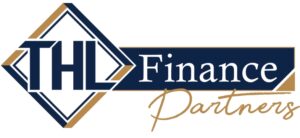Cash flow is the amount of money that goes in and out of your business; that is, income and expenses. Having enough cash at the right time will make it easier for your business to pay bills and other expenses and meet your tax, superannuation and employer obligations.
Paying regular attention to your record keeping and reporting will help you better manage your cash flow. Managing your cash flow allows you to plan for the future, for example, prepare for large expenses or expand your business.
Prepare a cash flow budget or projection
The best way to make sure you have enough cash available to meet your tax and other obligations is to do a cash flow budget or projection. This information will help you to:
- see your likely cash position at any time
- identify any fluctuations that may lead to potential cash shortages
- plan for your tax payments
- plan for any major expenses
- provide lenders with additional information.
Accounting for income and expenses can help keep your business running smoothly – by giving you an overview of when you can expect money to come in and when it may go out and highlighting where you may need to direct your money.
There are 3 main things to consider when creating your cash flow budget:
- Timing
- A cash flow budget isn’t ‘set and forget’. You can choose to work out your budget on a monthly, quarterly or yearly basis, depending on what you need or works for you.
- As your business grows or your situation changes, keep monitoring your budget to see how you’re tracking and update it if needed.
- Watch out for things such as significant differences between your budgeted amounts and your actual results.
- Costs
- Try to include all of your fixed costs and expected variable costs, for example, rent, insurance, utilities, advertising, internet, wages, equipment and taxes such as pay as you go (PAYG) instalments and goods and services tax.
- Income
- If you’re just starting out, estimate your expected income and you can continue to update your cash flow budget to help you keep track of income versus expenses.
- Once your business has been running for a while, you’ll be able to get a better idea of the business income you may be able to expect.
- Being more conservative with this amount may help give you some flexibility if unexpected, more costly expenses come up.
Your budget results will help you with your business decisions.
Source: ato.gov.au May 2024
Reproduced with the permission of the Australian Tax Office. This article was originally published on https://www.ato.gov.au/businesses-and-organisations/preparing-lodging-and-paying/record-keeping-for-business/setting-up-and-managing-records/manage-your-business-cash-flow
Important:
This provides general information and hasn’t taken your circumstances into account. It’s important to consider your particular circumstances before deciding what’s right for you. Although the information is from sources considered reliable, we do not guarantee that it is accurate or complete. You should not rely upon it and should seek qualified advice before making any investment decision. Except where liability under any statute cannot be excluded, we do not accept any liability (whether under contract, tort or otherwise) for any resulting loss or damage of the reader or any other person.
Any information provided by the author detailed above is separate and external to our business and our Licensee. Neither our business nor our Licensee takes any responsibility for any action or any service provided by the author. Any links have been provided with permission for information purposes only and will take you to external websites, which are not connected to our company in any way. Note: Our company does not endorse and is not responsible for the accuracy of the contents/information contained within the linked site(s) accessible from this page.

